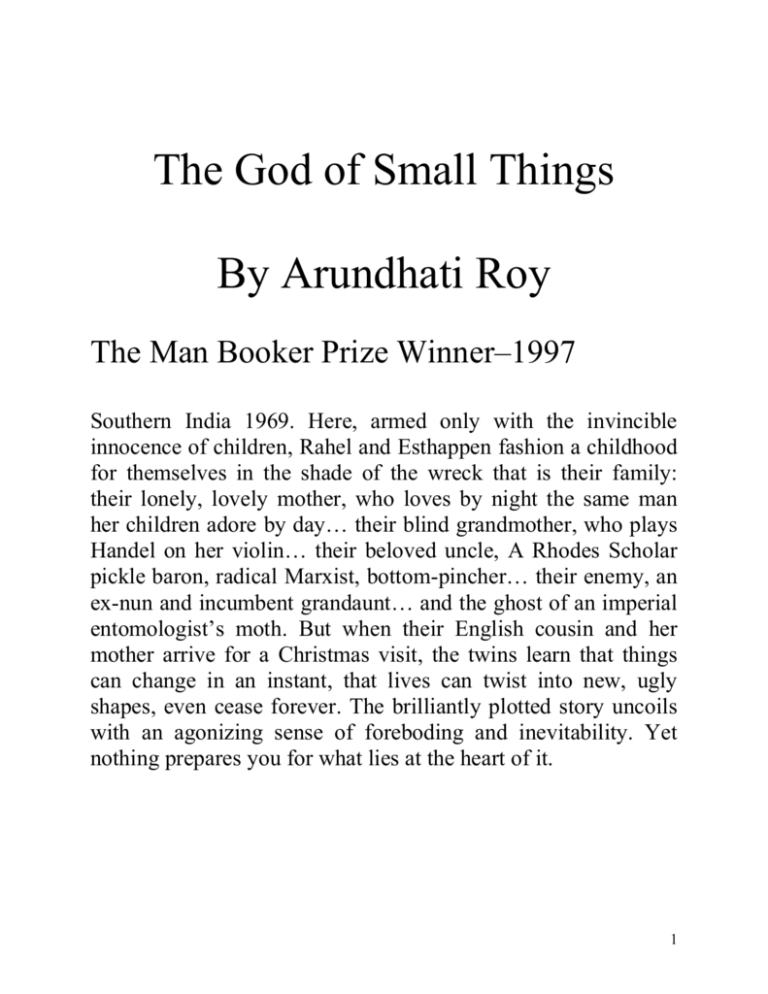
Her father, a Hindu tea planter from Bengal, was divorced from her Syrian Christian mother when Roy was very young, and Roy was raised by her mother, who ran an informal school. Author Biographyīorn circa 1960, Roy grew up in Aymanam, a village in the state of Kerala, in southern India. It is in love and politics that Roy’s carefully constructed, multifaceted narrative tends to dwell, and it is when love, politics, and history combine that Roy is able to communicate her most profound authorial insights. Some of the novel’s most thoroughly developed themes are forbidden love, Indian history, and politics. The novel is therefore able to comment simultaneously on universal, abstract themes, and a wide variety of ideas relating to the personal and family history of the members of the Kochamma family as well as the wider concerns of the Kerala region of India. Roy stresses throughout the novel that great and small themes are interconnected, and that historical events and seemingly unrelated details have far-reaching consequences throughout a community and country. The God of Small Things is an ambitious work that addresses universal themes ranging from religion to biology. Based loosely from the perspective of Rahel Kochamma, who has returned to her hometown to see her twin brother, it pieces together the story of the dramatic events of Rahel’s childhood that drastically changed the lives of everyone in the family. The novel tells the story of the Kochammas, a wealthy Christian family in a small village in the southern Indian state of Kerala. Immediately recognized as a passionate, sophisticated, and lushly descriptive work, it won Britain’s prestigious Booker Prize and launched its author to international fame.


Arundhati Roy’s debut novel The God of Small Things rapidly became a world-renowned literary sensation after it was published in New Delhi in 1997.


 0 kommentar(er)
0 kommentar(er)
